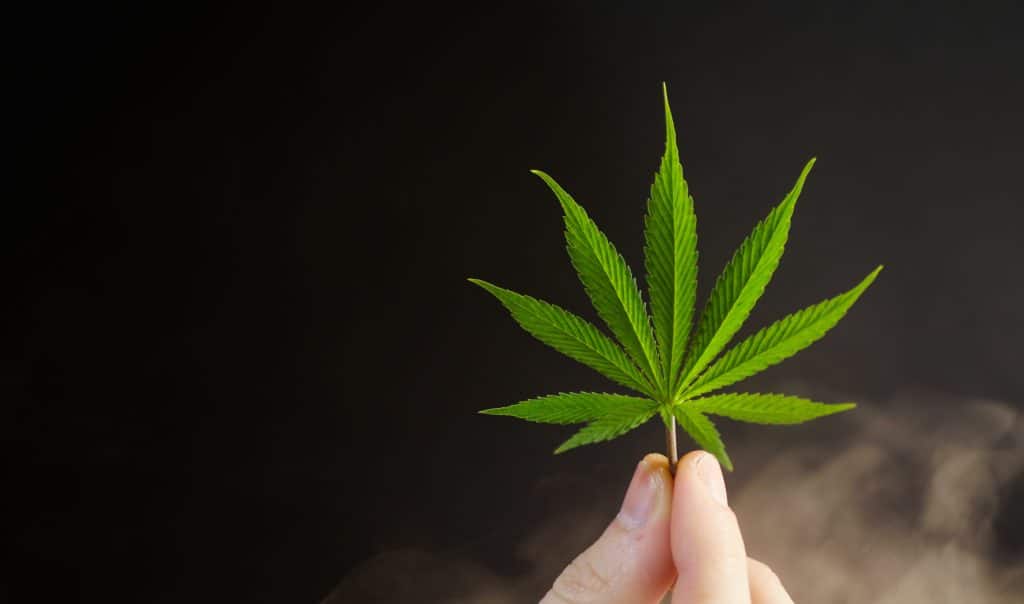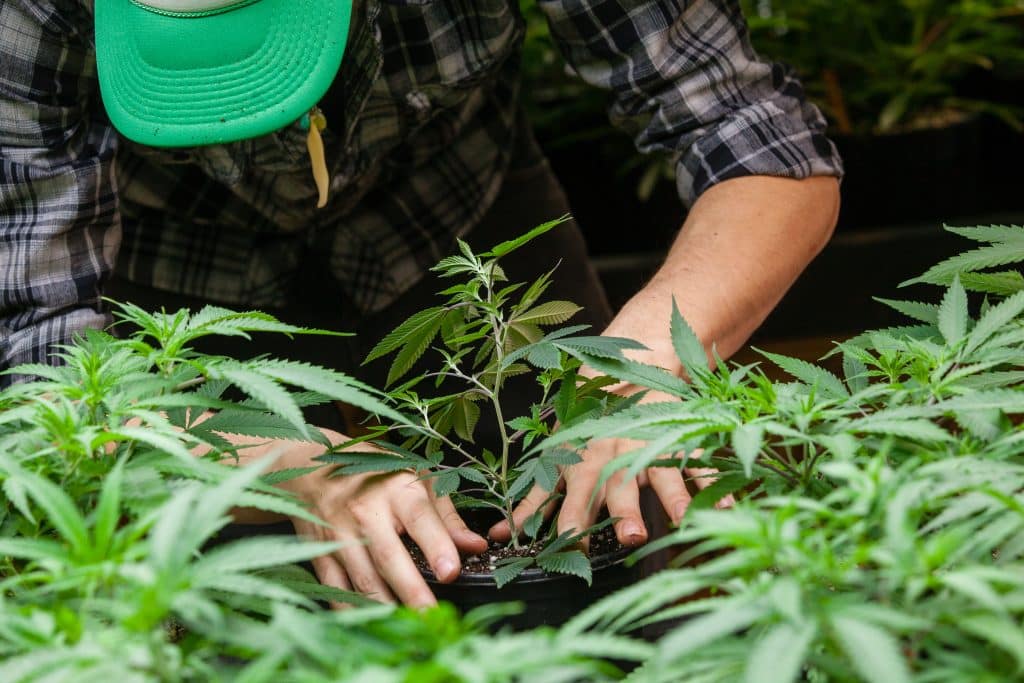Growers Without Borders is a collective of cannabis industry experts who are committed to upholding the traditional Socratic methods of education that characterizes the cultivation of marijuana through an open-source platform. The project is the brainchild of ex-marine, Jordan Curl, who has been part of the industry in form or another for more than 15 years.
Through Growers Without Borders, he aims to pass cutting-edge knowledge on cannabis cultivation, extraction and marketing to today’s budding cannabis entrepreneurs all over the globe. In this interview, he shares some of his fascinating history, knowledge and industry insights.
QUESTION: How did cannabis become part of your life?
I’ve been an advocate most of my life. I had heavy ADHD as a kid, and was a high dose of Ritalin from the age of 6 to about 12. It was a dose of 60 to 80mg, much higher than the recommended dosage, so it led to a bunch of other problems like OCD and other developmental issues. When I got to the age of 12, I tried cannabis, and very quickly there was a dramatic change in my quality of life. I could sleep. I could make friends for the first time. Going to school became something I enjoyed instead I something I dreaded. It was literally a life changing experience. From the age of 12 to 16, I was that nerdy kid writing my legislators to change the laws around cannabis and hemp because I knew its therapeutic potential firsthand.
QUESTION: One of your past projects is Warrior for Weeds. How did that organization get started?

I joined the Marines at age 17 and was based in California. When I was there, I became friends with a guy in the medical industry who taught me how to make extracts and medical edibles. I was with the Marines for four years, and when I got out, I ended up in Washington State, and for the first six months, I tried education, but slowly just ended up in cannabis because that’s what I knew. But I noticed lots of veterans in BS jobs or not getting the care they needed, and I saw the need to create opportunities for them.
I started one grow house, and when that worked out I added another, and another. And I staffed each grow with veterans because they were easy to work with, and I taught them how to grow, process and extract. From 2015, we built one of the second-largest delivery services in Seattle, which lead to getting the second recreational license with the legal 502 system, which meant we became the first licensed growers. This was a really interesting learning curve because we were dealing with all the pain points of a brand-new market.
QUESTION: Where does your belief in the Socratic method of education come from?
What most people don’t realize is that this has always been the way cannabis cultivation education is passed down. I’m currently in Eswatini, South Africa, and I know people here who are fourth generation deep cannabis growers. They may not have all the knowledge about nutrient ratios and soil care, and they make mistakes but they still have a unique skillset. Put the right person in the right place with the right knowledge and it makes a huge difference. One person can teach 10 people, 20 people, how to fix lots of different problems and create sustainable grow systems. It creates real opportunities for farmers.
Thanks for stopping by. Head over to the Cannadelics Weekly Newsletter for direct updates; and deals on products including cannabis flowers, vapes, edibles, smoking paraphernalia, cannabinoid products (like HHC), and a whole lot more. Tis the season to get good and stoned.
QUESTION: How did you end up in Eswatini and what are you working on there?
I came to Cape Town for a conference while I was working for an Israeli company, and because of COVID I got locked down here, and ended up staying for a few reasons. I was brought out here originally to help with building out the infrastructure for legalization but COVID put a dampener on that. So I took the model that I used to teach veterans and have been working with growers here, hosting classes and workshops.
Along the way I became the go-to guy for anyone who needs to know anything about growing cannabis. I’ve been invited to speak in parliament a few times, as well as bring my apprentices and give them the opportunity to speak on the challenges they’re facing. This place runs on agriculture, so cannabis has a key role to play and understanding their concerns is an important part of the process.
QUESTION: Is South Africa close to legalizing?
To be honest, it’s a scam. Growers were brought in from Jamaica as far back as 2014 to grow hemp for CBD. And consultants have been milking investors on the basis of South Africa’s huge agricultural potential. But the consultants are in bed with the government so everybody has to get paid off, and no one ever gets a license. There are half a dozen producers now, but no doubt they had to pay millions of rand to get up and running. I spent three months there, and even illegal grows are paying the government. But to be honest, this is just the way it is in cannabis for now. I don’t think I’ve ever seen a legal company that wasn’t doing something illegal, for the right or wrong reasons. It’s just how things get done, and I can’t judge that if it moves the whole industry forward.
QUESTION: Are there aspects of the way the industry that worry you?
The cannabis oils market concerns me. You know, at one point, all of the extracts and high potency strains in Europe were American product and it was a real problem for the Mexican cartels because it was pushing them out. Finally, they got an expert in, and started producing their own stuff. But the reality is a lot of the oils and synthetics that are being produced are full of contaminants, whether it’s the conversions or improper handling or people actually adding extra ingredients. A lot of these people just don’t know what they’re doing and I don’t think it’s in public interest to have that stuff around.
And if legislation changes in certain jurisdictions, things could go south for a lot of companies very quickly. Because of the risks that are being taken now, it could result in even more stringent regulation down the line. 8 or 9 states in the U.S. now have a ban on vapes because of links with popcorn lung when actually the whole thing started with a company who was added vitamin E to the formula, and misleading customers. The actions of one company made a worse regulatory environment for everyone. It’s so counterproductive to not follow smart public health measures but I see some serious scare stories related to vape oils in the future.
QUESTION: What inspired you to start Growers Without Borders?
For me, it was just about getting the right information into the right peoples’ hands. Right now, there are a lot of people trying to transition from the legacy to the legal market, and yet I have such a hard time convincing people to write a CV or do a business plan or get on LinkedIn. I want to show them that we don’t have to do the crazy things we used to do to make money, we’re professionals now. But there’s still so much stigma and it has to be broken. I travel a lot and I just make a point of helping people out wherever I go. Weed is such a global thing really it’s an international community.
QUESTION: What is your goal for Growers without Borders?
Basically, to support the legacy growers and help people find jobs by taking their skillset and transferring it over to the professional world. A lot of these people don’t realize that their skills have value in this new industry, or they don’t know how to access the industry. So, through various forums and group chats, we offer advice, share documents, and provide education on different methodologies. I know a lot of experts who have tips and tricks, so I invite them onto the forums to help out the people who need that advice. But we help with anything from finding seeds to making bubble hash.
QUESTION: What do you see for the future of cannabis market regulation?

Governments really need to get out of the way. We have such regulatory inconsistencies across markets it makes trade impossible, and leaves the door open for all sorts of shenanigans. I’ve heard it’s even possible to get non-GMP hemp certified as EU GMP hemp. Down the road, I think a lot of things will end up micro-tiered but there’s always going to be the McDonald’s of cannabis and commercial growers.
What I see most is that people generally like to consume cannabis that comes from their own country, and they want to be able to decide what they consume. And at the same time, individual countries will want to protect their domestic markets, and there has to be regulations and processes in place that assures safe product. And I’m speaking as someone who’s always been a fan of sketchy smoke shops, but because so much product is being cut these days, safety will become an issue in the future.
This interview has been edited and condensed.
Hello readers! We appreciate you making it over to Cannadelics.com; an independent news platform where we work daily to get you the best stories from the cannabis and psychedelics spaces. Drop by regularly to stay updated on everything going down, and subscribe to the Cannadelics Weekly Newsletter, so you’re never late to get the news.
The post Growers Without Borders Passes On Ancient Wisdom to Cultivators appeared first on Cannadelics.
Via https://cannadelics.com/2022/12/19/growers-without-borders-passes-on-ancient-wisdom-to-cultivators/
source https://rosalinaklerkx.weebly.com/blog/growers-without-borders-passes-on-ancient-wisdom-to-cultivators
No comments:
Post a Comment